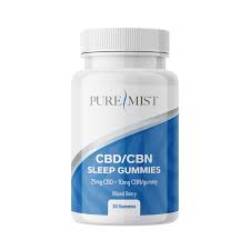Walk into any beauty store today and you’ll spot CBD on nearly every shelf. Face serums, moisturizers, eye creams—all infused with this hemp-derived compound that seemed to appear out of nowhere. But CBD didn’t just show up randomly in your skincare aisle. It earned its spot through some pretty compelling science and real results that people actually noticed.
What started as a wellness supplement has transformed into one of the most talked-about ingredients in beauty. CBD, short for cannabidiol, is a non-psychoactive compound extracted from hemp plants. It won’t get you high, but it might just change how your skin looks and feels. This shift happened fast. CBD skincare went from niche to mainstream in just a few years, and beauty brands—both established names and scrappy startups—are racing to keep up with demand.
So what’s the real story here? Is CBD genuinely revolutionizing skincare, or is this just another ingredient that’ll fade when the next trend comes along? Let’s break down the science, the benefits, and what you actually need to know before adding it to your routine.
What Makes CBD a Skincare Game-Changer
CBD brings something different to the table. Unlike many skincare ingredients that target one specific issue, CBD works with your skin’s own regulatory system. Your skin has what scientists call an endocannabinoid system—a network of receptors that helps maintain balance. When CBD interacts with these receptors, it can help calm inflammation, reduce redness, and support overall skin health.
The compound itself has three main properties that matter for skincare: it’s anti-inflammatory, antioxidant, and soothing. That combination is rare. Most ingredients excel at one thing. CBD seems to handle multiple concerns at once.
Think of it this way. Your skin is constantly responding to stress—pollution, UV rays, harsh products, lack of sleep. CBD helps your skin manage those responses better. It doesn’t fight your skin’s natural processes. It supports them.
The endocannabinoid system in your skin regulates things like oil production, cell growth, and inflammatory responses. When CBD enters the picture, it can help fine-tune these functions. That’s why people with completely different skin types—dry, oily, sensitive, combination—report seeing improvements.
The Science Behind CBD and Skin Health
Here’s where things get interesting. Research shows CBD can actually reduce sebum production in people with oily skin. Sebum is that natural oil your skin produces, and when you make too much of it, you get clogged pores and breakouts. A 2014 study found that CBD helped regulate sebaceous gland activity, potentially reducing acne formation.
The anti-inflammatory properties are perhaps even more significant. Skin conditions like eczema, psoriasis, and rosacea all involve chronic inflammation. CBD appears to calm these inflammatory responses without the harsh side effects of some prescription treatments. Dermatologists are starting to take notice.
Dr. Rachel Nazarian, a dermatologist based in New York, has noted that CBD’s anti-inflammatory benefits can help with various skin concerns. The compound works by interacting with CB1 and CB2 receptors in the skin, which play a role in regulating inflammation and pain perception.
Redness and irritation—the bane of sensitive skin—also respond well to CBD. The compound helps stabilize stressed skin cells and reduces the release of inflammatory markers. For people who’ve tried everything for their reactive skin, CBD sometimes offers relief when other ingredients failed.
There’s also the antioxidant angle. CBD fights free radical damage, which contributes to premature aging. Some studies suggest it might be even more effective than vitamins C and E in this regard, though more research is needed to confirm that claim.
Top Benefits of CBD-Infused Skincare Products
The benefits stack up quickly when you look at what CBD can actually do for your skin. Let’s start with hydration. CBD-infused products often combine the compound with moisturizing ingredients, creating formulas that hydrate without feeling heavy or greasy. Your skin gets moisture and anti-inflammatory benefits in one step.
Anti-aging is another major draw. By fighting oxidative stress and supporting skin repair, CBD may help reduce the appearance of fine lines and wrinkles. It won’t erase decades of sun damage overnight, but consistent use shows promise for maintaining a more youthful appearance.
Acne relief deserves special attention. Unlike harsh acne treatments that strip your skin, CBD takes a gentler approach. It regulates oil production, calms inflammation, and helps prevent future breakouts. People with adult acne—often triggered by stress and hormones—find this particularly helpful.
Compare that to retinol, which can irritate sensitive skin, or hyaluronic acid, which focuses solely on hydration. CBD offers a broader range of benefits without the harsh adjustment period some ingredients require.
Real-world examples tell the story best. Sarah, a 34-year-old marketing manager, struggled with hormonal breakouts for years. After trying a CBD serum for three months, she noticed fewer breakouts and less redness overall. Her experience isn’t unique. Online reviews and testimonials suggest many people see improvements within weeks of starting CBD skincare.
The anti-aging effects show up differently for different people. Some notice improved texture. Others see a reduction in inflammation-related puffiness. A few report that their skin just looks calmer and more balanced.
What to Know Before Adding CBD to Your Skincare Routine
Not all CBD products are created equal. You need to know what you’re buying. Full-spectrum CBD contains other beneficial compounds from the hemp plant, including trace amounts of THC (always under the legal 0.3% limit). Broad-spectrum CBD removes the THC but keeps other cannabinoids. CBD isolate is pure CBD with nothing else.
For skincare, broad-spectrum or full-spectrum often works best. Those additional compounds create what’s called the “entourage effect,” where ingredients work better together than alone. But if you’re concerned about any THC at all—even trace amounts—isolate is your safest bet.
Lab testing matters more than you might think. Reputable brands provide third-party lab results proving their products contain what the label claims. Without this verification, you’re taking the company’s word for it. Don’t.
Check ingredient lists carefully. CBD should appear near the top, indicating a meaningful concentration. If it’s buried at the end after a dozen other ingredients, you’re probably not getting much actual CBD.
Start with a patch test. Apply a small amount to your inner arm and wait 24 hours. CBD is generally well-tolerated, but individual reactions vary. Better to discover sensitivity on your arm than your face.
Pro tip: Begin with one CBD product rather than overhauling your entire routine. Add a serum or moisturizer and give it 4-6 weeks to work. Your skin needs time to respond, and you need to see if it’s actually making a difference before investing in more products.
The Future of CBD in Skincare
CBD has moved beyond trend status. The science supports its use, consumers are buying in, and brands are investing heavily in CBD product development. This isn’t a flash in the pan that’ll disappear next season.
What makes CBD different from past skincare fads is the combination of efficacy and versatility. It works for multiple skin types and addresses various concerns. That broad appeal, backed by research and real results, suggests staying power.
CBD isn’t just a trend. It’s redefining what healthy, radiant skin means—and it’s doing it one calmed, balanced complexion at a time.
FAQs
Is CBD safe for all skin types?
Yes, CBD is generally safe for all skin types, including sensitive skin. Its anti-inflammatory properties make it particularly suitable for reactive or irritated skin. Some people with very sensitive skin should still patch test first, but serious adverse reactions are rare.
Can CBD really help with acne and inflammation?
Research suggests CBD can help with both. It regulates sebum production, which reduces clogged pores, and its anti-inflammatory properties calm existing breakouts. Studies show it can be effective for inflammatory skin conditions, though results vary by individual.
What’s the difference between hemp seed oil and CBD oil?
Hemp seed oil comes from hemp seeds and contains no CBD. It’s moisturizing but doesn’t offer CBD’s therapeutic benefits. CBD oil is extracted from the leaves, flowers, and stalks of hemp plants and contains active cannabidiol. They’re completely different ingredients despite coming from the same plant.
Are CBD skincare products legal everywhere?
In the United States, CBD derived from hemp (containing less than 0.3% THC) is federally legal. Some states have additional restrictions, so check local laws. Internationally, regulations vary widely. Always verify the legal status in your location before purchasing.
How soon can you see results from CBD skincare?
Most people notice initial improvements within 2-4 weeks of consistent use. Significant changes in skin texture, tone, or specific concerns like acne typically require 6-8 weeks. Patience matters—CBD works with your skin’s natural processes, which take time to adjust and respond.


